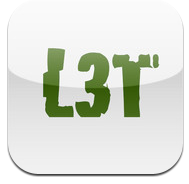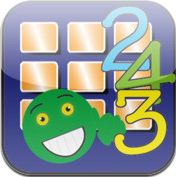Die schriftliche Arbeit für die erste L3T-iPad-App, die das Kapitel „Vom Overhead-Projektor zum iPad“ interaktiv umsetzt ist nun auch verfügbar:
Klicken Sie auf den unteren Button, um den Inhalt von www.scribd.com zu laden.

Digitale Lehre an und rund um der Technischen Universität Graz
Die schriftliche Arbeit für die erste L3T-iPad-App, die das Kapitel „Vom Overhead-Projektor zum iPad“ interaktiv umsetzt ist nun auch verfügbar:
Klicken Sie auf den unteren Button, um den Inhalt von www.scribd.com zu laden.
… titelt die Zeitschrift „Der Arbeitsmarkt“ in einem kurzen Bericht zu meiner Keynote auf der SeLC-Conference in Zürich.
Ein dramatischer Wandel in Bezug auf mobiles Lernen hat gemäss Ebner schon jetzt stattgefunden, wobei er namentlich das Faktenwissen anspricht. «Wir haben uns daran gewöhnt, Wissen [sic] jederzeit mithilfe eines Smartphones abrufen zu können.» Das sei schon heute Realität und Teil unseres Lebens. «Informationen sind immer verfügbar, man muss sie aber finden und anwenden können.» (Grund für sic: es sollte Informationen heißen)
Mehr gibt es hier [Link].
At this year LAK 2012 Conference on „Learning Analytics and Knowledge“ we presented our first results of the netidee project „Multiplication Trainer„. Our publication is also online available:
Abstract:
One of the first and basic mathematical knowledge of schoolchildren is the multiplication table. At the age of 8 to 10 eachchild has to learn by training step by step, or more scientifically, by using a behavioristic learning concept. Due to this fact it can be mentioned that we know very well about the pedagogicalapproach, but on the other side there is rather less knowledgeabout the increase of step-by-step knowledge of the schoolchildren.In this publication we present some data documenting thefluctuation in the process of acquiring the multiplication tables.We report the development of an algorithm which is able to adaptthe given tasks out of a given pool to unknown pupils. For this purpose a web-based application for learning the multiplicationtable was developed and then tested by children. Afterwards so-called learning curves of each child were drawn and analyzed bythe research team as well as teachers carrying out interestingoutcomes. Learning itself is maybe not as predictable as we knowfrom pedagogical experiences, it is a very individualized processof the learners themselves.It can be summarized that the algorithm itself as well as thelearning curves are very useful for studying the learning success.Therefore it can be concluded that learning analytics will becomean important step for teachers and learners of tomorrow.
Klicken Sie auf den unteren Button, um den Inhalt von www.scribd.com zu laden.
Reference: Schön, M., Ebner, M., Kothmeier, G. (2012) It’s Just About Learning the Multiplication Table, Conferecnce Proceeding of LAK12: 2nd International Conference on Learning Analytics & Knowledge, 29 April – 2 May 2012, Vancouver, BC, Canada
Das Magazin kmu life hat angefragt ob ich eine kurze Kolumne zum Thema Mobile Learning schreiben möchte – nun das Ergebnis ist der folgende Text. Ich freue mich wie immer auf Rückmeldungen:
Klicken Sie auf den unteren Button, um den Inhalt von www.scribd.com zu laden.
Quelle: Ebner, M. (2012) Mobile Learning – Wozu?, kmu life 02/2012, S.26
Meine Präsentation zur heutigen Keynote auf der Swiss eLearning Conference (SeLC) ist nun online verfügbar. Ich möchte dabei die Stellung der Mobiltelefone in der heutigen Gesellschaft zum Ausdruck bringen und zeige auch die Möglichkeiten auf, die wir zukünftig erwarten können:
Nun, ich bin nun auch Mitglied bei Pinterest – hier geht es zu meinem Profil. Hat es auf den ersten Blick unspektakulär ausgesehen, bin ich auf dem zweiten doch durchaus angetan. Besonders interessant find ich die Möglichkeit, dass ich meine Fotos die ich über Jahre mit Twitpic, Facebook oder neuerdings Instagram gemacht habe, nun endlich sortieren kann.
Daneben ist über das Bookmarklet ein schnelles Ablegen von interessanten Dingen in einer entsprechenden Kategorie möglich. Also erster Eindruck sagt, dass es zwar keine neue Idee ist, aber sie ist grafisch ansprechend umgesetzt mit ein paar netten Kleinigkeiten die mir den Alltag erleichtern könnten.
 Das L3T E-Book für den iPad ist ab sofort in einer neuen Version im App-Store. Das Update enthält diesesmal die Ergänzung aller weiter hinzu gekommenen Links des L3T-Projektes.
Das L3T E-Book für den iPad ist ab sofort in einer neuen Version im App-Store. Das Update enthält diesesmal die Ergänzung aller weiter hinzu gekommenen Links des L3T-Projektes.
Für allen jene Leserinnen und Leser die bereits die Version 1.0 gekauft hatten, bitten wir diese Version vom iPad zu löschen und das Update neu zu synchronisieren (dies ist durch diese Umstruktierung leider nötig).
Ich wurde zur heurigen Swiss eLearning Conference (SeLC) als Keynote eingeladen und werde dort einen Vortrag rund um das Thema mobile Learning halten. Einmal schauen, was ich mir bis dorthin alles einfallen lasse, Ideen sind wie immer willkommen.
Weiters hat man mit mir auch ein Interview geführt, wo ich kurz meine Gedanken zum Thema präsentieren durfte:
Was bedeutet der immer und überall mögliche Zugriff auf Informationen und Netzwerke für die Lernkultur?
[…] Das ist heute schon Realität und Teil unseres Lebens. Man muss heute eine andere Form von Medienkompetenz aufbauen: Informationen sind immer verfügbar, man muss sie aber entsprechend finden und anwenden können. Zudem können wir heute in Echtzeit mit ExpertenInnen diskutieren, wir müssen nur die richtigen Fragen stellen und die Antwort richtig interpretieren. Diese Möglichkeit der Interaktion ist einzigartig in der menschlichen Geschichte und auch die wahre Revolution hinter dieser Technologie.
 Eine weiter iPhone-App entwickelt von einem Studierenden an der TU Graz hat den Weg in den App Store geschafft: MatheMemory. Ein Spiel mit dem wir versuchen wollen Lernen (einfaches Addieren) und Freude (Memory) zu verbinden. Es gibt auch mehrere Schwierigkeitsstufen sowohl bei der Addition als auch bei der Anzahl der Karten. Wie immer freuen wir uns sehr über Feedback 🙂 .
Eine weiter iPhone-App entwickelt von einem Studierenden an der TU Graz hat den Weg in den App Store geschafft: MatheMemory. Ein Spiel mit dem wir versuchen wollen Lernen (einfaches Addieren) und Freude (Memory) zu verbinden. Es gibt auch mehrere Schwierigkeitsstufen sowohl bei der Addition als auch bei der Anzahl der Karten. Wie immer freuen wir uns sehr über Feedback 🙂 .
The MatheMemory App allows children to start learning mathematic playfully. Behind the memory cards with funny motifs hide tricky plus and minus calculations and results. The Goal is to find the right results to the according calculations. Different stages provide different levels of difficulty and balloons signal the number of cards. Both can be easily selected. Wether in the jungle or in the circus, nothing is blocking the funny calculating!
Depending on the level, the numbers are between 0 and 50. Addition and subtraction are used. Finding the right calculation and result pairs is rewarded with funny motifs and sounds and thus positive associated.
Hier kann die App downgeloadet werden [Link] und alle weiteren verfügbaren Apps der TU Graz findet man hier [iTunes Link].
Our publication on „It’s just About Learning the Multiplication Table“ got accepted for this year conference on Learning Analytics and Knowledge 2012. We will talk about our research results concerning the project „Intelligent Multiplication Table“. The abstract of our contribution:
One of the first and basic mathematical knowledge of school children is the multiplication table. At the age of 8 to 10 each child has to learn by training step by step, or more scientifically, by using a behavioristic learning concept. Due to this fact it can be mentioned that we know very well about the pedagogical approach, but on the other side there is rather less knowledge about the increase of step-by-step knowledge of the school children.
In this publication we present some data documenting the fluctuation in the process of acquiring the multiplication tables. We report the development of an algorithm which is able to adapt the given tasks out of a given pool to unknown pupils. For this purpose a web-based application for learning the multiplication table was developed and then tested by children. Afterwards so- called learning curves of each child were drawn and analyzed by the research team as well as teachers carrying out interesting outcomes. Learning itself is maybe not as predictable as we know from pedagogical experiences, it is a very individualized process of the learners themselves.
It can be summarized that the algorithm itself as well as the learning curves are very useful for studying the learning success. Therefore it can be concluded that learning analytics will become an important step for teachers and learners of tomorrow.
We are looking forward to meet you in Vancouver to discuss our research results 🙂 .